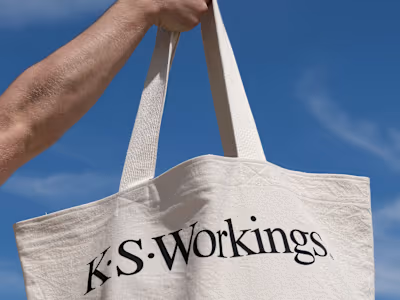A memo on mindful business
Over the past thirty years, we have seen a proverbial boomerang in how people interact with cities. Generally speaking, we can consider a city to be a densely-populated urban or metropolitan area; a hive of living activity with a reciprocal flow of culture and commerciality. Cities constantly experience changes in diversity of people and economic prosperity through business activity. A direct attribute of this is changes in population through urbanisation. Urbanisation in the 1990s and 2000s was an answer to the rapid advancements in technology, creating an economic boom up until the global financial crisis in 2008. Businesses grew as the economy soared, our cities became gentrified and more populated, and, in a lot of ways, also became lifeless. We had more people and more money, but as new offices and buildings were developed, the character of our cities waned. Old heritage buildings, such as the classic colonial architecture that became synonymous with city character in New Zealand, were flattened to make space for a more homogenous and efficient construction of city dwellings. This was all to accommodate large offices of largely soulless multinationals, and this happened globally. The GFC called for reform––a reform that took the shape of a return to small, design-centric, artisanal enterprises that breathe life back into our cities, and operate as a balance to these large corporations. This dichotomy of business philosophy creates a much-needed mutual dependency for cities and businesses: a yin and yang.
The point I am trying to make with this example is that there is a need for more mindful and authentic business. It is certainly already being catered to, but the approach should be given more credence by businesses in all industries. It is an approach that garners positive consumer interaction and response––if non-mindful business is the fast-food chain, mindful business is the healthy alternative. It makes people feel good. As the millennial consumer has risen in prevalence and developed into an increasingly important demographic, for both marketing and socio-political purposes, the effect of this desire to return to authenticity and experience has intensified. Staying with the example of cities, Auckland provides a great case study in the City Works Depot on Wellesley Street. Converted from a large car park that was for many years a symbol of destitute inner-city function, the space is now home to food outlets, a botanist, creative offices, and a brewery, among a slew of other boutique establishments. The space could have easily remained a needed tool to the city as simply a place to park your car, however by finding an adjacent function to the space, we have positively contributed to economic and social activity.
Millennial-friendly small businesses have essentially become the new mom-and-pop store—gutsily hanging in alongside the omnipresent corporate Goliaths—and are a vessel of the new business philosophy.
When you visit one of these places, such as the City Works Depot, you feel the city and its roots. It’s an effective way to curb the natural negative effects of gentrification—such as increasing rent prices, the extinction of decades-old independent businesses and corner stores, and the erection of bland office blocks—by fostering community. Once simply an ancillary space to serve the surrounding offices, including the towering Skycity buildings (a great example of the bad kind of inner-city gentrification), the car park is now the City Works Depot, a standalone destination that cultivates social city living. This is essential lifeblood to a city, and to the interrelationship of business. Millennial-friendly small businesses have essentially become the new mom-and-pop store—gutsily hanging in alongside the omnipresent corporate Goliaths—and are a vessel of the new business philosophy.
So how does this relate to the way we want to conduct business going forward? The coronavirus epidemic of 2020, leading to the fatal COVID-19 disease, has likely left many searching for answers to the important questions. Chief among these: what really matters? What is important to us? The new philosophy is there, à la Marie Condo; a cull of excess. A more targeted, specialised economy. A conscious way of dealing with clientele in all industries. One method of doing this via corporate strategy is need marketing––do not flood your market with unnecessary products, or the promotion of those products, rather innovate and find new ways to make the market and its products more effective. Experiential marketing has also become more popular. Businesses have realised that people desire connection, and brand loyalty is hard-earned but quickly lost. Outdoor Voices, the American activewear brand, shows how rapidly you can find success through this marketing strategy. Founded a mere six years ago in 2014 by a young graduate in New York City, Outdoor Voices used a healthy blend of transparency and authenticity in its marketing. This is propped up primarily by a comprehensive influencer marketing scheme, a type of experiential marketing that uses social media. They operated under the approach that anyone could be an influencer, using plus-sized models frequently to promote products and sharing customer’s pictures that were posted to Instagram using hashtags associated with the brand. The products were free from logos and were able to seamlessly fit into any wardrobe due to their neutral silhouettes and colour palettes. Spearheading this accessible, club-like philosophy was the founder, Tyler Haney, the brand’s commander-in-chief and muse to their loyal following. Outdoor Voices and their unique strategy catapulted to success in the crowded activewear market. The lesson here is that we should cater to the customer’s needs in a more direct sense, and offer authenticity via experience. All companies should be adopting the directive that all business should be good business, and market themselves with a need-based method, with the opportunity to connect and invite customers in and experience the product. A well-intentioned, people-focussed strategic ethos.
Businesses have realised that people desire connection, and brand loyalty is hard-earned but quickly lost.
In a truly globalised society, we feel effects in market changes almost instantaneously. Trends can develop in the blink of an eye, and the internet is the harbinger for word-of-mouth––and this applies just as much domestically as it does across borders. For businesses, embedding more corporate social responsibility is a must, and not in the traditional, MBA-prescribed sense. Business ethics and sustainability are obviously integral to a corporate makeup, but we must depart from antiquated maxims and evolve into a more creatively developed outlook when establishing top-level command.
This is especially true for large-scale organisations, who, more often than not, rely on bureaucratic processes. One company that falls into this category is Air New Zealand, one of the powerhouse corporations in our country. They announced this past week that their yearly revenue will decrease from over $5 billion to around $500 million due to the global economic fallout from COVID-19––a 90% reduction. How would the equation I’m speaking of apply to them? Build brand equity and retention by being authentic and mindful. Many people would rather fly with Air New Zealand because they are considered a superior service provider, but the company cannot rely on this equity alone anymore as their core operations have been scaled back. This has been the case with almost all businesses. The crisis has not discriminated. A specialised approach to Air New Zealand’s corporate strategy to help offset their commercial troubles might be to develop a stronger philanthropic arm to their business. This could be investing in battery or electric engine innovation to reduce their carbon footprint. Partnering with a smaller creative company to collaborate on a product, service, or experience offering would also be an effective way to generate good public relations and create a new revenue stream. We must exercise critical thinking, thinking with dexterity and moxie, to our corporate strategy that can transcend traditional management, and ditch cookie cutter principles. Specialise your CSR, and generate actual equitable returns in the form of customer retention and social good, and your bottom line will certainly benefit.
Like what you're reading? Head to miles.international/ to connect.
We don’t know what the most effective way of carrying out business is right now. We do, however, have an ecosystem, figuratively speaking, within which we can monitor the effects of a more mindful approach to business. Business-as-usual cannot be relied upon right now, and should not be relied upon in the future. We know from the aftermath of the GFC what kind of economic activity yields an effective response from the new consumer; a different mindset to enterprise, one that allows a smaller, localised, and authentic strategy. This culture is already being embedded into many companies, and we have seen an outpouring of compassion from some of the world’s best businesses in the past twelve weeks. What I contend is that this be a central tenet to critical business philosophy going forward.
Business, at its core, is about people, and we must use business functions in a way in which our people can benefit, and which will provide successful consumer response for years to come––through authenticity and effective use of our cities, marketing based on needs and experience, and a more specialised corporate strategy.
Like this project
Posted Sep 13, 2021
Likes
0
Views
19





